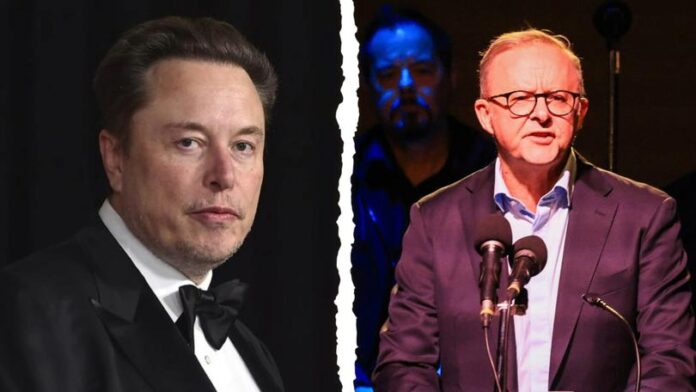A heated exchange has unfolded between tech mogul Elon Musk and Australian Prime Minister Anthony Albanese concerning the moderation of content on social media platform X, following its refusal to censor material related to the Wakeley church stabbing incident in Australia.
The saga began when the Australian eSafety Commissioner issued a directive to X, urging the removal of graphic content depicting the alleged stabbing of a bishop at a church in western Sydney. X, however, stood firm, signaling its intent to legally challenge what it deemed an “unlawful and dangerous approach” to content moderation.
Prime Minister Albanese entered the fray, criticizing X for its decision not to censor the content. Musk, known for his outspoken nature, took notice of Albanese’s comments and responded in kind, mockingly thanking the PM for suggesting that X was the only truthful platform.
In a further jab, Musk shared an illustration depicting X as the path of free speech and truth, contrasting it with other social media platforms like YouTube, Instagram, Facebook, TikTok, Threads, and Reddit, which were portrayed as avenues of censorship and propaganda. The caption accompanying the image humorously encouraged viewers to “Just ask the Australian PM!” for confirmation.
Albanese, unswayed by Musk’s remarks, labeled him as “out of touch” and criticized his prioritization of ego and violence over common sense. He emphasized the distress caused by the dissemination of violent videos and asserted that Musk’s actions demonstrated a disregard for Australian law and common decency.
The clash intensified as the Federal Court of Australia granted a temporary injunction in favor of eSafety Commissioner Julie Inman Grant, compelling X to remove posts related to the stabbing incident. This legal development underscored the gravity of the situation and the ongoing battle between tech companies and regulatory authorities over content moderation practices.
Musk’s defiance and Albanese’s condemnation highlight the complexities surrounding freedom of speech, social responsibility, and the role of tech giants in shaping online discourse. As the debate rages on, it prompts reflection on the delicate balance between upholding fundamental rights and protecting individuals from harmful content in the digital age.


